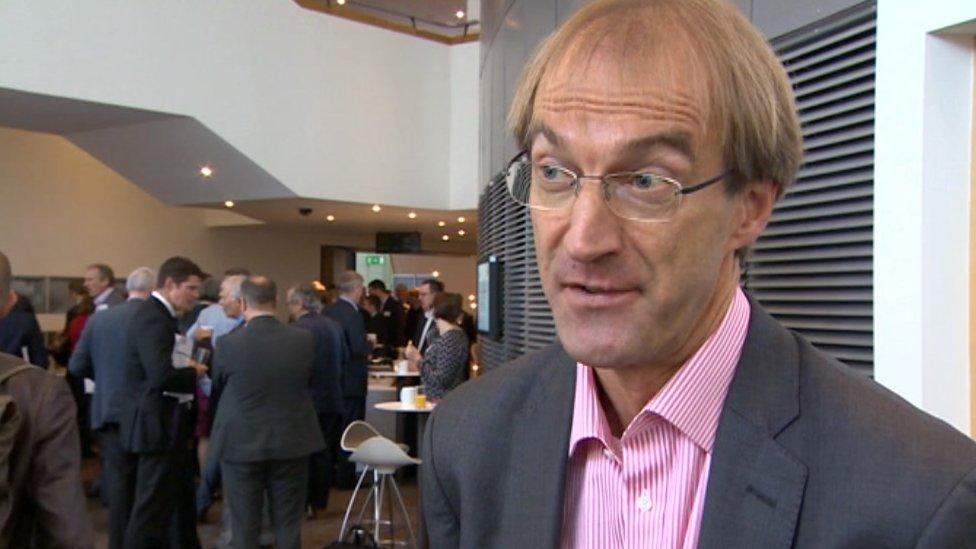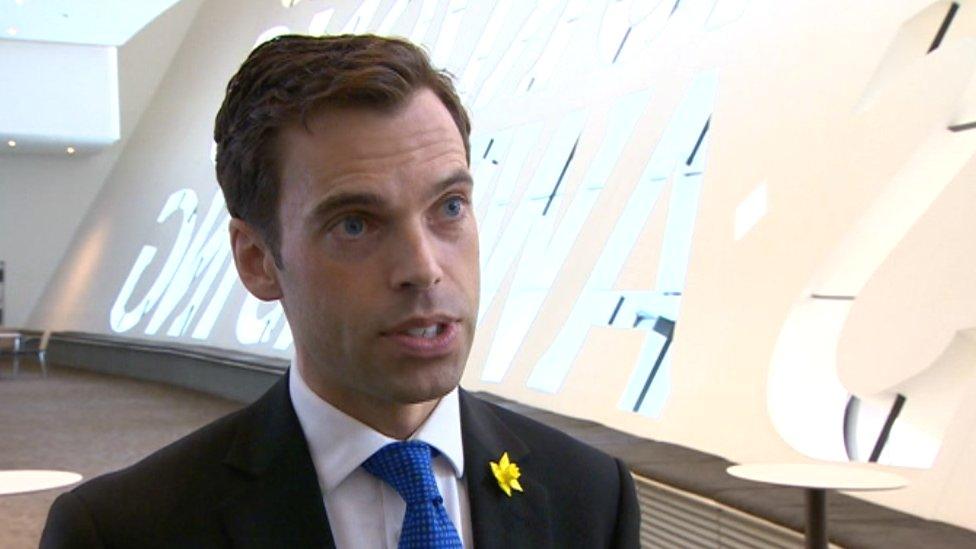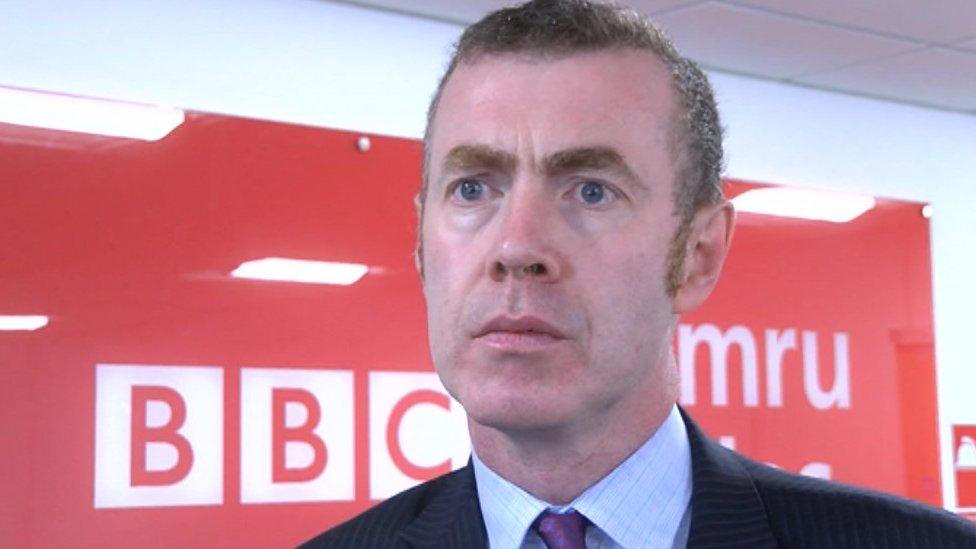Brexit 'not end of world' for UK economy: Welsh Government advisor
- Published

The vote to Leave the EU is not the end of the world for the UK economy, an economic advisor to the Welsh Government has said.
Kevin Gardiner said some are being "perhaps unduly pessimistic" after the vote to leave the EU.
His comments come as Welsh Government Economy Secretary Ken Skates said leaving the single market would make it "more difficult to attract investors".
Plaid Cymru has accused the Welsh Government of having no Brexit plan.
Mr Gardiner, who serves on the Welsh Government's financial and professional services sector panel which provides advice to ministers, said: "From an economic perspective it probably would have been better for UK business generally and business in Wales to have voted to have stayed in the community.
"Is it the end of the world? I think not.
"I think the UK is quite capable of thriving, and Wales within that, particularly given the competitive advantage that Cardiff has relative to the rest of the UK."
"I think people are being perhaps unduly pessimistic about what the future holds," he said.
"In the very short term, the currency has come down, the pound is a lot cheaper than it was," he said.
"Companies looking to invest in the UK, looking to develop an exporting business from the UK, looking to hire people, they are finding that the cost of doing business in the UK relative to the rest of the world, relative even to the rest of Europe, has come down a little. That will help a bit."

Speaking at a joint Institute of Welsh Affairs and Capital Law conference in Cardiff, Mr Skates said 2015 was the second best year on record for foreign direct investment.
But he said that "most foreign investors identify membership of the single market as the single key biggest factor for them investing here".
"If we leave that market, then it will become more difficult to attract investors," he said.
"In the short term we need to address uncertainty that has arisen globally, not just within Europe, not just within Wales, about what it means for the world. "
Asked if foreign companies were more likely to invest in EU member states rather than Wales, the economy secretary said: "Not necessarily.
"As Aston Martin rightly pointed out when they decided to come to Wales, we have a small nimble, dynamic, agile government, we were able to respond quickly."

Plaid shadow economy minister Adam Price said he was "shocked and dismayed" at the government's reaction to the referendum result.
Plaid is calling for infrastructure investment, increased funding to replace EU programmes and new tax powers.
Mr Price said: "I've been shocked and dismayed by the fact the cupboard is bare.
"There is no contingency plan.
"We were calling for this some weeks ago when it was clear to us there was a real possibility of the UK leaving the EU and the potential impact that would have on Wales.
"We really need a sense from Welsh Government that there is an action plan for Wales.
"Where's the plan now which actually can give confidence to business and to people in Wales however they voted that actually we have a plan going forward that can mitigate some of the impact there's going to be on Wales whatever the terms of the eventual Brexit deal.
"Wales needs a Marshall Plan for the Welsh economy."
The Marshall Plan was a programme of funding given to Western Europe by the United States after the Second World War.